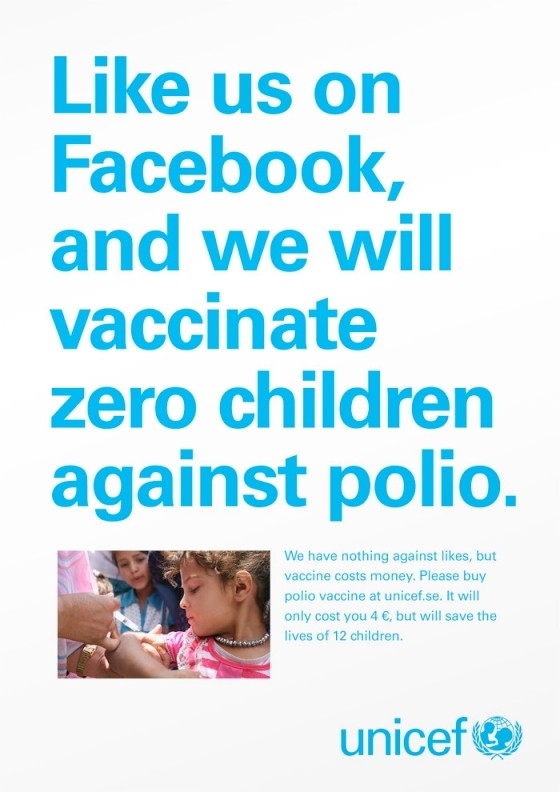Dave LeClair
Posts: 75 +1
All too often we see causes spread on social networks claiming that, for each Like received, some sort of a charitable contribution will be made. But today UNICEF Sweden launched a campaign reminding people that Facebook Likes do not equate to money, and people really looking to help out a cause should do so with actual monetary contributions. The poster below sums the goal of the campaign nicely.

To go along with the campaign UNICEF released three commercials, aired in Swedish, each taking a different approach to deliver the message. The first -- and probably the one with the most impact -- features a young orphan boy talking about how he is worried that he might get sick, like his mom got sick. He then goes on to say that UNICEF has 177,000 Facebook Likes, so he thinks everything will be alright.
The other two commercials are not as serious. Both of them feature the same person trying to pay for goods -- lunch in one of them, and a cashmere sweater in the other -- with Facebook Likes. Obviously that doesn't work out too well. Each of the ads closes with the message "Vaccine[s] can't be bought with likes either."
There is nothing wrong with awareness campaigns on Facebook, as it introduces people to major world issues they may not have known existed. However, UNICEF, along with advertising agency Forsman & Bodenfors, are simply reminding people that in order to make a real difference, donations are needed.
"We like likes, and social media could be a good first step to get involved, but it cannot stop there," said UNICEF Sweden Director of Communications Petra Hallebrant in an interview with The Atlantic. "Likes don't save children's lives. We need money to buy vaccines for instance."
Now that UNICEF has come forward to remind everyone that Facebook Likes will not actually change the world, it will be interesting to see whether other charitable organizations will come forward with similar statements.
[/s]